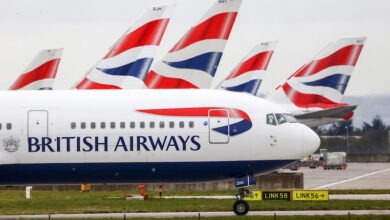Singapore and Africa: A South-South Story


Jamil Idris Abubakar, a 41-year-old farmer from Jigawa State in northern Nigeria, has been in the sesame-seed business for more than three decades. His four farms span 50 hectares that yield up to 600 metric tons of sesame each year. Five years ago, he started selling crops to Robust International, a Singapore-based agricultural company that deals in specialty crops such as cashews, sesame, and ginger, primarily in Africa and Asia. Robust also gives Idris Abubakar access to a storage warehouse that helps keep his crops from spoiling, a major issue in Nigeria that accounts for roughly five percent of its greenhouse-gas emissions.
The relationship is illustrative of Singapore’s growing role as a champion of ‘South-South’ investment, a term used to describe investment flows between emerging markets. Such investment is a key source of financing for developing countries, and a means to transfer standards, knowledge, and successful business models.
“There are now many Singaporean companies in Africa, and we have a good relationship with them,” said Idris Abubakar. “Their reputation is excellent. If you are doing business with them, you will grow.” Since partnering with Robust, Idris Abubakar has expanded his business significantly, acquiring more land and more than tripling the number of his employees from 15 to nearly 50. “Robust gives us good prices and hosts meetings with our community at the start of every season to inform us on trends in the local market and the international market which makes us more competitive. They are also educating us on best farming practices so we can increase our yields and protect our soil.” he added.


Since gaining independence almost 60 years ago, Singapore has overcome a slew of development challenges to become one of Asia’s biggest economic success stories—and something of a mentor for other developing economies in their efforts to alleviate poverty and promote shared prosperity. “Singapore is at the forefront of innovation in a range of sectors that are either the lifeblood of many developing economies, such as agribusiness, or are pivotal to them solving key development challenges, such as infrastructure,” said Nicolas Marquier, Country Manager for Singapore at IFC. “This makes it an important partner for emerging markets in regions such as Africa, which are going through similar development challenges that Singapore experienced in the last six decades.”
Also Read: To Toll or Not to Toll?
The relationship between Asia and Africa has been especially prosperous. Africa has been a key source of raw commodities to Asia, while Asia has been a key exporter of finished products to Africa. Singapore’s growing relationship with Africa is particularly notable. There are now more than 100 Singaporean companies on the continent, compared to about 60 in 2018. The city state’s total trade with Africa grew to US$10.9 billion last year, up 25 percent from the previous year.


Enterprise Singapore, an enterprise development agency that helps homegrown companies expand their footprint beyond Singapore, has greatly ramped up its presence in Africa in recent years. “Africa is a market no company can or should ignore,” said G. Jayakrishnan, Executive Director for South Asia, the Middle East, and Africa at Enterprise Singapore. “The demographic dividend, its rich natural endowments, and a very vibrant private sector. Then there are all the development needs: infrastructure, education, and consumption requirements. Singapore also has a very small domestic market, and so it’s critical to diversify, especially with all the recent supply-chain shocks and disruptions.”
The interest isn’t one-sided, either. As a region, Asia’s rising middle class and consumption trends offer significant potential for economic growth, and recent findings from the World Bank indicate that exports to Asia have raised labor productivity, wages, and capital intensity in Africa. Singapore also offers unique synergies that can help solve some of the continent’s biggest development challenges, and vice versa.
“Africa is also the world’s fastest-urbanizing continent,” said Jayakrishnan. “Millions are moving to the cities. And Singapore is a city state. We’ve been dealing with urban issues, renewal, and land-use planning for more than 50 years. This is where Singapore can contribute in a very positive way, lending expertise and experience African cities can use.” Jayakrishnan highlighted water resource management as a case in point.
Another area of mutual interest is the digital economy. Africa enjoys high internet penetration, with around 80 percent of the population having a mobile phone subscription, and Singapore is known the world over as a sophisticated financial technology and fundraising hub. These two factors combined create many lucrative South-South investment opportunities.
South Africa’s Tyme is a company that has recognized the benefits of being an African financial technology company in Singapore. The digital banking group set up its global headquarters in Singapore as part of its plans to expand into Asia. Tyme’s flagship operation, TymeBank, now has over five million customers and has attracted additional investment from Chinese technology giant Tencent and British International Investment, the U.K. development-finance institution.
Using Singapore as its hub, Tyme has acquired a digital banking license in the Philippines in partnership with the prominent Gokongwei family, and it has applied for an additional license in Pakistan. It has also set up a technology hub in Ho Chi Minh City, Vietnam, which houses over 200 engineering and product staff.
“South Africa has more in common with emerging markets in Asia than many other African countries,” said Rachel Freeman, Chief Growth Officer at Tyme in Singapore. “Our model works best in high population countries where banking is expensive. In South Africa, we launched the first bank account without a monthly fee. Prior to that, people had to pay banks to hold their money. We look for markets where there is friction blocking access to the underserved, which is why we’re looking at the Philippines and Pakistan.”


South Africa has much more advanced customer offerings than many countries in Asia. For instance, onboarding customers in South Africa is simpler and faster thanks to national digital identity cards, a system that is also present in Pakistan but isn’t in many other countries in Asia. “The Philippines doesn’t have that system,” said Freeman. “We’re looking to significantly disrupt that model and make onboarding much more efficient.” Customers in South Africa can open a bank account and print a Visa debit card in a grocery store in under five minutes. This model could significantly improve access to banking services in many countries in emerging Asia, where some people must travel for half a day to reach a branch.
Also Read: Singapore Named World’s Most Competitive Economy, as US Makes Drastic Fall
Tyme is also developing banking services for people with a ‘side hustle’, smaller jobs they hold in addition to their main jobs, such as selling products on Facebook and Instagram, which is fast becoming a multibillion-dollar business. This trend is also gaining traction in Asia, giving Tyme a first-mover advantage in offering such services in this region. Tyme would look to handle the payments for those transactions, as well as offering business tools and TymePOS, its point-of-sale software for phones.
“Our business is a classic example of South-South investment in action,” added Freeman. “We’re taking something we do in Africa and bringing it to Asia.”







